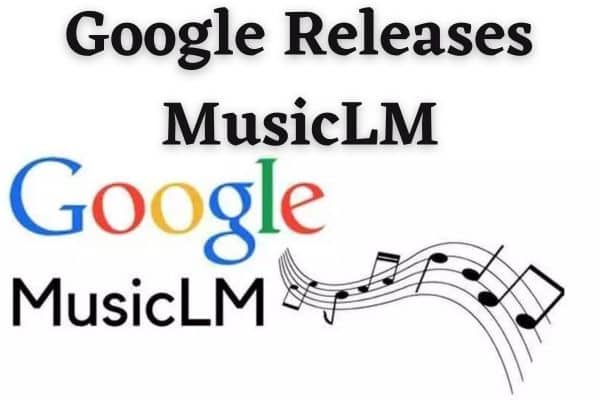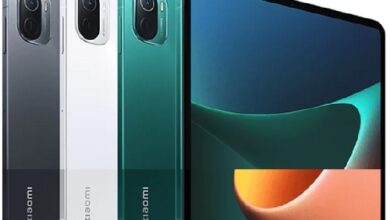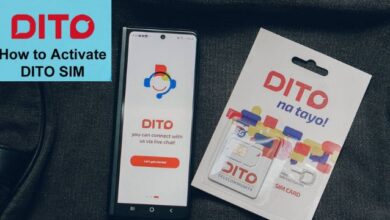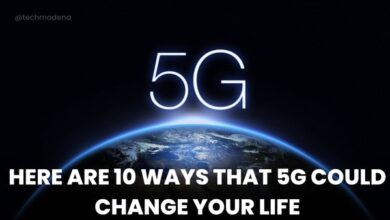Google Releases MusicLM: Turning Text Descriptions into AI-Generated Music
Exploring the Boundaries of AI-Generated Music: Google's MusicLM and the Challenges Ahead

Google Releases MusicLM: Google has made waves in the tech and music communities with the release of MusicLM, an experimental AI tool designed to transform text descriptions into original musical compositions. Available through the AI Test Kitchen app on web, Android, and iOS platforms, MusicLM empowers users to specify the style, mood, and instruments they desire, allowing the AI to generate multiple versions of the requested song. While Google initially expressed reservations about releasing the tool due to ethical concerns and potential copyright infringement, they have been actively collaborating with musicians to explore its creative potential.
Google Releases MusicLM
Unlocking the Creative Process
With MusicLM, users can unleash their musical creativity by simply typing in prompts such as “soulful jazz for a dinner party” or “create an industrial techno sound that is hypnotic.” The AI then goes to work, generating several versions of the requested composition. Users can further refine their creations by specifying instruments like “electronic” or “classical,” as well as the desired “vibe, mood, or emotion.” The tool’s flexibility and adaptability aim to provide a rich and personalized musical experience.
Addressing Ethical Challenges
When Google previewed MusicLM in an academic paper, concerns were raised about ethical challenges and potential copyright infringement. AI systems like MusicLM have a tendency to incorporate copyrighted material from their training data into generated songs, presenting a legal minefield. However, in the version released in the AI Test Kitchen, Google has taken precautions to ensure that the tool does not generate music featuring specific artists or vocals. By doing so, they aim to mitigate potential copyright issues and respect intellectual property rights.
Legal Complexities and Copyright Infringement
The emergence of generative AI in music has led to debates about copyright infringement and the reproduction of existing works. Platforms like YouTube and Spotify have faced legal battles over AI-generated music, with record labels asserting intellectual property concerns. Copyright strikes against YouTube channels and the removal of thousands of AI-generated songs from streaming platforms highlight the ongoing challenges in this space.
Legal scholars argue that AI music generators such as MusicLM may violate copyright laws by creating coherent audio from ingested works during the training process, potentially infringing upon the reproduction rights outlined in the United States Copyright Act. The ability of AI systems to learn and produce similar effects based on existing music can be a source of discomfort for artists whose work is involved.
The Path to Clarity
The legal implications surrounding music-generating AI are expected to become clearer as several lawsuits make their way through the courts. These cases may shed light on the rights of artists whose works are used to train AI systems without their knowledge or consent. The outcomes of these legal battles will likely shape the future of AI-generated music and provide guidance on how to navigate the complex intersection of technology and copyright law.
FAQ
Q: What is MusicLM?
A: MusicLM is an experimental AI tool developed by Google that converts text descriptions into AI-generated musical compositions.
Q: How can I access MusicLM?
A: MusicLM is available through the AI Test Kitchen app, which can be accessed on web, Android, and iOS platforms.
Q: What can I do with MusicLM?
A: With MusicLM, users can input text prompts specifying the style, mood, instruments, and desired vibe or emotion. The AI then generates multiple versions of the requested song, allowing users to explore and refine their musical ideas.
Q: Can MusicLM generate music with specific artists or vocals?
A: No, the version of MusicLM available in the AI Test Kitchen does not generate music featuring specific artists or vocals. This is likely a precautionary measure to avoid potential copyright infringement and respect intellectual property rights.
Q: Are there any copyright concerns with MusicLM?
A: Yes, there are potential copyright challenges associated with AI-generated music. AI systems like MusicLM have the ability to learn from existing music during the training process, raising questions about copyright infringement and reproduction rights. Incorporating copyrighted material into generated songs without proper authorization could pose legal issues.
Q: How is Google addressing copyright concerns with MusicLM?
A: Google has taken steps to address copyright concerns by ensuring that MusicLM does not generate music with specific artists or vocals. This is an attempt to mitigate potential copyright infringement and respect intellectual property rights.
Q: Are there any legal cases related to AI-generated music?
A: Yes, there are ongoing legal cases surrounding AI-generated music. Lawsuits pertaining to copyright infringement and the rights of artists whose works are used to train AI systems without consent are currently making their way through the courts. The outcomes of these cases may provide clarity on the legal implications of music-generating AI.
Q: How will the legal landscape impact AI-generated music?
A: The legal implications surrounding AI-generated music are still evolving. The outcomes of ongoing legal battles will likely shape the future of AI-generated music and provide guidance on how to navigate the complex intersection of technology and copyright law.
Q: Can I use MusicLM to create music for commercial purposes?
A: The usage terms and commercial viability of MusicLM or any AI-generated music should be reviewed based on the specific guidelines provided by Google and relevant copyright laws in your jurisdiction. It is recommended to consult legal professionals for accurate advice on using AI-generated music commercially.
- How to Download Apple Music Classical App
- 3 Ways to Save Instagram Stories With Music Easily
- What is Spotify? Music, pricing, and features explained
- Can I Still Upload Music to Amazon Music in 2022?
Conclusion
Google’s release of MusicLM represents an exciting development in the field of AI-generated music. By allowing users to transform text descriptions into original compositions, the tool offers a creative and personalized musical experience. However, the legal and ethical challenges surrounding copyright infringement remain significant hurdles. As the legal landscape evolves, it will be interesting to see how these challenges are addressed and how AI-generated music will shape the future of the music industry.






